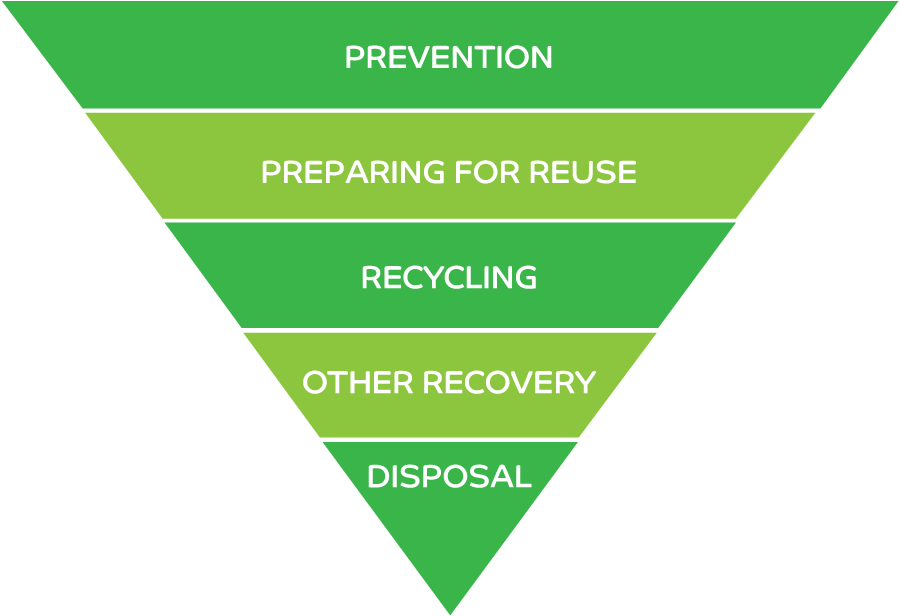A-Z Guides
Waste management
The UK produces around 200 million tonnes of waste annually according to the most recent DEFRA data – a quarter of which is from commercial and industrial premises, and 14% from households. Half of the waste is generated from construction with the remainder derived from agriculture, forestry and fishing, mining and quarrying.
Organisations handling, storing, transporting, treating and disposing of waste must be aware of a wide range of waste-related legislation to avoid prosecution. However, businesses can also save around 1% of turnover each year through effective waste minimisation programmes.
Steps to consider in the overall process of waste generation through to disposal are outlined below.
- Step one – Identify the types and sources of waste generated from your business
- Step two – Identify opportunities to reduce waste by applying the waste hierarchy whereby reducing the use of materials in the first instance (prevention) is the preferred option
- Step three – Wastes should be appropriately and securely stored at all times
- Step four – Identify the most appropriate means of waste management
- Step five – Select authorised waste carriers and disposal contractors
- Step six – Maintain comprehensive records – all controlled waste transfers/movements, intermediate storage, recovery, or disposal must be accompanied by a waste transfer note (WTN) for non-hazardous wastes or a waste consignment note for hazardous wastes.
Waste Hierarchy:

As part of the bigger picture for waste management, it is important to understand the legal definition of waste and the implications of generating, handling, storing, transporting, treating and disposing of controlled waste. Cost considerations for each of these elements should be taken into account as waste disposal costs have increased over recent years due both to the decreased landfill disposal capacity following implementation of the Landfill Directive, increased waste treatment costs and also to the increased data return fees that waste management contractors have to pay the Environment Agency. There is therefore a real financial gain to be made in effectively reducing and managing the disposal of wastes and in particular hazardous waste types.